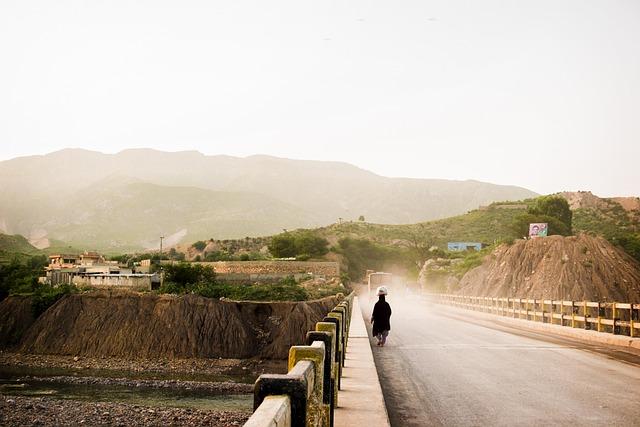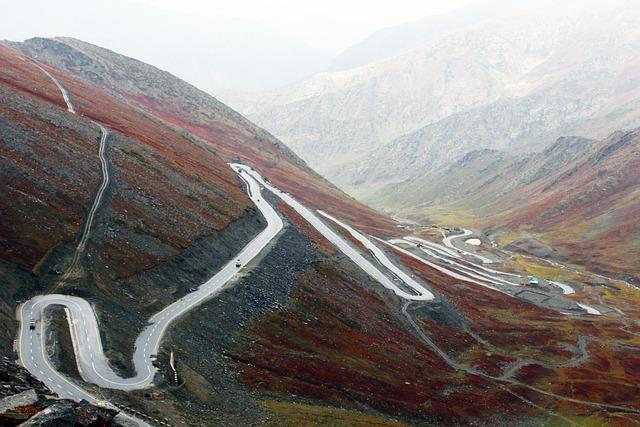Pakistan’s Role in Shaping Global International Relations: A Strategic Nexus
In an ever-evolving tapestry of global politics, few nations epitomize the complexities and dynamics of international relations as vividly as Pakistan. Nestled at the crossroads of South Asia, the Middle East, and Central Asia, Pakistan’s geographical and geopolitical significance has made it a pivotal player in regional and global affairs. From its historical alliances to its emerging partnerships, Pakistan’s diplomatic maneuvers resonate well beyond its borders. As the world faces multifaceted challenges—from security threats and economic shifts to climate change and humanitarian crises—understanding Pakistan’s role becomes essential for deciphering the intricate web of international relations. This article delves into the historical context, contemporary challenges, and future prospects of Pakistan’s influence on global affairs, illuminating how this nation not only navigates its own path but also shapes the destinies of nations across the globe.
Pakistans Strategic Geography: A Gateway to Regional Cooperation
Positioned at the crossroads of South Asia, Central Asia, and the Middle East, the country serves as a pivotal hub for facilitating cooperation among neighboring nations. This unique geographical positioning allows it to function as a bridge for trade, energy corridors, and diplomatic channels, fostering greater regional interaction. The potential for development is immense, as Pakistan can leverage its location to enhance economic ties and promote stability in a region often marked by conflict. With initiatives like the China-Pakistan Economic Corridor (CPEC), the strategic significance of the nation is further amplified, drawing global attention and investment.
Moreover, Pakistan’s natural resources and vibrant markets present unique opportunities for collaboration. Nations looking to expand their influence in the region can utilize these attributes for mutual benefit. Regional cooperation could lead to:
- Enhanced trade routes: Creating smoother pathways for goods and services.
- Energy partnerships: Fostering joint ventures in oil and gas sectors.
- Security alliances: Prioritizing collaborative efforts against terrorism and extremism.
In this context, Pakistan is not just a participant but a key player, capable of influencing the dynamics of international relations through proactive engagement and strategic partnerships.

Balancing Act: Navigating Relations with Major Powers
In the complex tapestry of global politics, Pakistan finds itself in a perennial balancing act, deftly managing its relations with major powers like the United States, China, and India. Each relationship is characterized by a unique set of interests and dynamics. With the United States, Pakistan has historically oscillated between partnership and tension, navigating challenges such as counter-terrorism cooperation while addressing concerns over sovereignty and regional stability. Conversely, Pakistan’s growing affinity with China marks a significant shift, highlighted by investments and collaborative projects under the China-Pakistan Economic Corridor (CPEC), enhancing economic ties while fostering strategic alignment against shared geopolitical rivals.
The nuances of Pakistan’s stance towards India illustrate the delicate nature of its foreign relations. The longstanding conflict over Kashmir continues to be a pivotal issue, occasionally thawing through dialogue but often reverting to hostilities. To maintain equilibrium, Pakistan has engaged in various diplomatic negotiations, aiming to stabilize its borders and regional security while seeking to bolster its influence in multilateral forums. This multifaceted approach has not only enhanced Pakistan’s standing but has also positioned it as a crucial player in regional geopolitics, which is evident in its participation in organizations such as the Shanghai Cooperation Organization (SCO) and its evolving ties with the Gulf Cooperation Council (GCC).
| Major Power | Key Interests | Pakistan’s Response |
|---|---|---|
| United States | Counter-terrorism, Economic Aid | Cooperation while asserting sovereignty |
| China | Infrastructure, Strategic Alliance | Strengthening ties via CPEC |
| India | Kashmir Conflict, Regional Dominance | Continuous dialogue amidst tensions |

Soft Power in Action: Cultural Diplomacy and Its Global Impact
In an era where the art of persuasion transcends traditional diplomacy, Pakistan has remarkably embraced cultural diplomacy as a cornerstone of its international relations strategy. By showcasing its rich heritage and diverse traditions, the country has fostered mutual understanding and respect among nations. Key initiatives include:
- Cultural Festivals: Events like the Lahore Literary Festival and Pakistan’s participation in international arts festivals allow for vibrant exchanges of ideas and showcase local talent.
- Educational Initiatives: Scholarships for foreign students and academic collaborations have cultivated goodwill and created long-lasting connections with other nations.
- Art and Music Diplomacy: Collaborations with artists and musicians from various countries highlight unity in diversity and serve as a universal language of peace.
Furthermore, Pakistan’s strategic geographical position acts as a bridge between East and West, enhancing its role in fostering dialogue on pivotal global issues. This cultural outreach has not only improved bilateral relations but also created opportunities for economic cooperation. A glimpse of its multifaceted impact can be illustrated in the following table:
| Region | Engagement Activity | Outcome |
|---|---|---|
| South Asia | Joint Performances | Strengthened regional ties |
| Middle East | Trade Exhibitions | Increased trade relations |
| Europe | Cultural Exchange Programs | Enhanced mutual understanding |

Future Directions: Enhancing Multilateral Engagement for Sustainable Development
The future landscape of global cooperation necessitates a more integrated approach to multilateral engagement, where nations prioritize sustainable development to confront cascading global challenges. As countries like Pakistan bolster their diplomatic initiatives, they must establish strategic partnerships that emphasize innovation, resource sharing, and comprehensive policy frameworks. The implementation of International Development Goals (IDGs) in collaboration with global organizations can serve as a guiding star in shaping these alliances, helping foster inclusive economic growth and environmental sustainability. By participating in global fora, Pakistan can leverage its unique geographical and cultural assets to advocate for diplomatic channels that underscore integrated sustainable practices across various sectors.
Moreover, strengthening multilateral cooperation can be accomplished through the establishment of collaborative platforms that promote dialogue and action on pressing issues such as climate change, poverty alleviation, and inequality. Pakistan’s role in these dialogues should reflect a commitment to knowledge exchange, technology transfer, and capacity building among developing nations. A proactive stance in forming bilateral and multilateral agreements can pave the way for environmentally sound investments and best practices that prioritize long-term benefits. A focused effort could be illustrated in the following table, which shows potential areas for collaboration:
| Collaboration Areas | Potential Partners |
|---|---|
| Climate Action | UN Environment Program, ASEAN |
| Water Resource Management | SACEP, SAARC |
| Renewable Energy | IRENA, Global Renewable Energy Coalition |
| Education Initiatives | UNESCO, Commonwealth |
The Way Forward
As we draw the curtains on our exploration of Pakistan’s role in shaping global international relations, it becomes clear that this nation, often viewed through a lens of complexities and contradictions, stands as a pivotal player on the world stage. The threads of diplomacy, trade, and strategic alliances weave together a narrative that reflects not only Pakistan’s ambitions but also its enduring resilience in the face of challenges.
From its rice fields to bustling cities, from the corridors of power to the grassroots movements, Pakistan’s influence extends far beyond its borders, engaging with global narratives that are dynamic and ever-evolving. As we contemplate the future, the engagement of Pakistan with emerging powers, regional dynamics, and global challenges such as climate change and security will continue to shape the contours of international relations.
In a world increasingly characterized by interconnectedness and interdependence, understanding Pakistan’s position and contributions is vital. It reminds us that every nation possesses the potential to influence global discourse, and in doing so, crafts a legacy that will resonate with generations to come. As nations navigate the complex waters of diplomacy and cooperation, Pakistan’s journey will undoubtedly serve as a compass for those seeking to understand the intricate dance of international relations in an ever-changing world.



